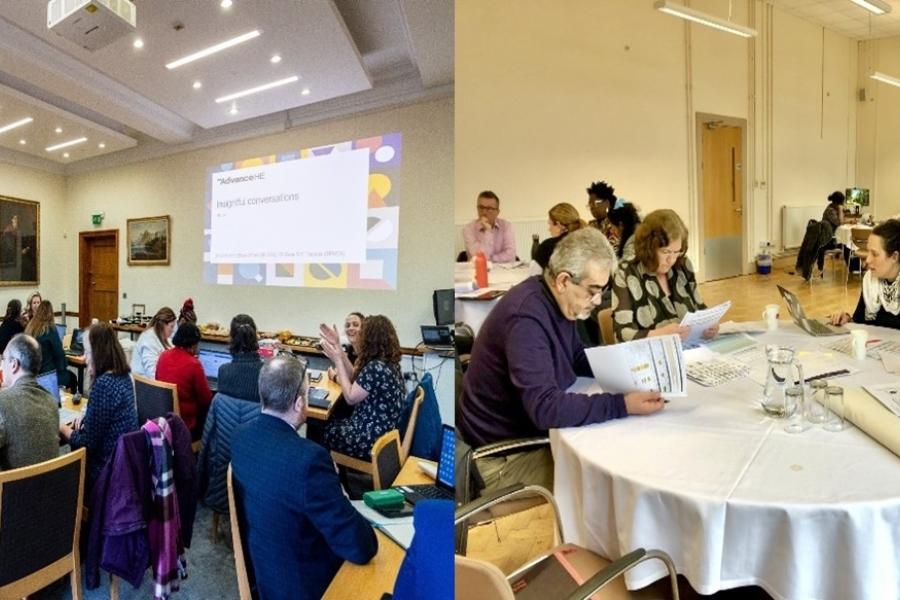Bangor University strives to be an equitable, diverse and inclusive place to work, and study. To achieve Bangor University’s vision and mission, the University recognises the importance of removing any barriers to race equality.
In April 2022, Bangor University became a member of Advance HE’s Race Equality Charter (REC) and, in April 2025, the University achieved REC Bronze Award (See our joining letter here). Bangor achieved Bronze award alongside the seven other Welsh Universities, signalling an ongoing commitment across tertiary education in Wales, to improve the representation, experience, progression and success of black, Asian and minoritised ethnic staff and students within higher education. All eight of Wales's universities have achieved the Race Equality Bronze Award - Medr.
Professor Morag Macdonald, Pro-Vice-Chancellor for Equality, Diversity and Inclusion, Chair of the University’s Equality, Diversity and Inclusion & Wellbeing committee, and active member of the REC Self-Assessment team at the time, said:
“This award is testament to the work or our fantastic Race Equality Charter Self - Assessment Team who have been engaged in extensive consultation with our staff and student community, along with extensive data analysis to provide a comprehensive picture of the University’s challenges – and opportunities – and which led to the development of our action plan. The University remains deeply committed to advancing race equality and creating an inclusive environment for all.”
What is the Race Equality Charter (REC)?
The Race Equality Charter (REC) is a UK wide higher education framework, led by Advance HE, aimed at improving the representation, progression, and success of black, Asian, and minoritised ethnic staff and students.
Universities who become a REC member are given 5 years in which to carry out an institutional self-assessment in relation to race equality, develop a Race Action Plan and submit an application for REC award (see BU Race Action Plan page).
The REC is underpinned by the following five fundamental guiding principles:
1. Racism is an everyday facet of UK society and racial inequalities may manifest themselves in everyday situations, processes, and behaviours. Racial disparities are a critical issue in outcomes for staff and students, recognising that racial inequalities are not necessarily overt, isolated incidents.
2. The UK higher education sector will not reach its full potential unless it can benefit from the talents of the whole population and until individuals from all ethnic backgrounds can benefit equally from the opportunities it affords.
3. To tackle racial inequalities, it is important that actions are aimed at achieving transformational and long-term institutional culture change, avoiding a deficit model where actions are aimed at changing the individual.
4. Staff and students from racially minoritised ethnic backgrounds are not a homogeneous group. People from different ethnic backgrounds have different experiences of, and outcomes from and within, higher education, and that complexity needs to be considered in analysing data, developing solutions, and implementing actions.
5. Embracing intersectionality, from analysing data to developing actions, can better support institutions to tackle racism within the higher education sector.
How did we achieve REC bronze award?

BU’s REC Self-Assessment Team (SAT) was established in March 2023, bringing together a diverse range of colleagues and students selected for their roles, expertise, and lived experiences representing academic and professional services colleagues alongside students and student union representation.
Over the course of 18 months, the SAT provided dedication and commitment to the self-assessment process. Their contributions were wide-ranging and impactful: participating in SAT meetings, engaging in an in-depth 'Understanding Race and Racism' programme led by Advance HE, collaborating with the University Executive Board, leading thematic workgroups, analysing institutional data, and setting clear priorities for the University’s Race Action Plan (see BU Race Action Plan).
